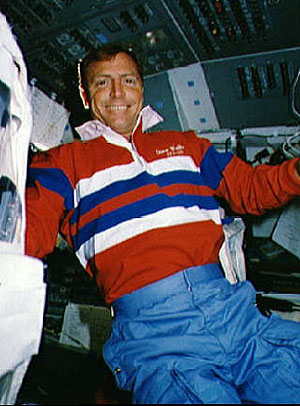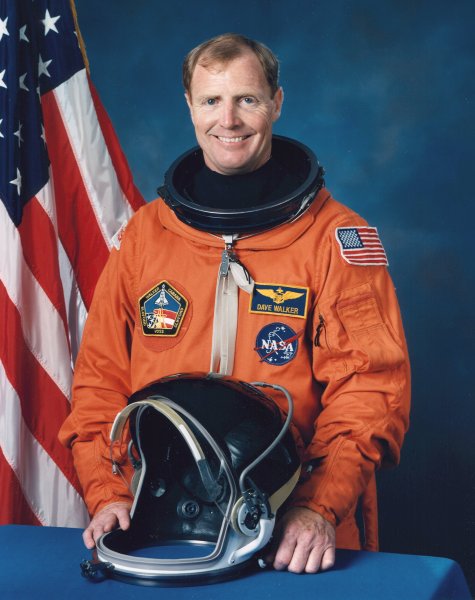David Walker (David Mathieson Walker)

David Walker graduated from the U.S. Naval Academy at Annapolis, Maryland and subsequently received flight training from the Naval Air Training Command at bases in Florida, Mississippi, and Texas. He was designated a Naval Aviator in December 1967 and proceeded to Naval Air Station Miramar, California, for assignment to F-4 Phantoms aboard the aircraft carriers USS Enterprise and USS America. From December 1970 to 1971, he attended the U.S. Air Force Test Pilot School at Edwards Air Force Base, California, and was subsequently assigned in January 1972 as an experimental and engineering test pilot in the flight test division at the U.S. Naval Test Pilot School, NAS Patuxent River, Maryland. While there, he participated in the Navy’s preliminary evaluation and Board of Inspection and Survey trials of the F-14 Tomcat and tested a leading edge slat modification to the F-4 Phantom. He then attended the United States Navy Safety Officer School at Monterey, California, and completed replacement pilot training in the F-14 Tomcat at NAS Miramar, California. In 1975, Walker was assigned to Fighter Squadron 142 (VF-142), stationed at NAS Oceana, Virginia, as a fighter pilot and was deployed to the Mediterranean Sea twice aboard the USS America. He logged more than 7,500 hours flying time, with over 6,500 hours in jet aircraft.
One of 35 candidates selected by NASA in January 1978 for the new Space Shuttle program, David Walker became an astronaut in August 1979. Among his technical assignments, he served as Astronaut Office Safety Officer; technical assistant to the Director of Flight Crew Operations in 1981; a chase pilot on STS-1; software verification at the Shuttle Avionics Integration Laboratory (SAIL); mission support group leader for STS-5 and STS-6; Assistant to the Director, Flight Crew Operations; leader of the astronaut support team at Kennedy Space Center in 1985; Branch Chief, Space Station Design and Development; and Special Manager for Assembly, Space Station Project Office. From July 1993 to June 1994, Walker was Chief of the Station/Exploration Support Office, Flight Crew Operations Directorate, after which he chaired the JSC Safety Review Board. A veteran of four spaceflights, Walker logged nearly 725 hours in space. He was the Pilot on STS-51-A in 1984, and was the Commander of STS-30 in 1989, STS-53 in 1992 and STS-69 in 1995. David Walker was in training to command STS-61-G, scheduled for a May 1986 launch when the Challenger disaster forced NASA to suspend all Shuttle flights. In 1989, while piloting a NASA T-38 to Washington, D.C. for ceremonies honoring the crew of STS-30, Walker came within 100 ft (30 m) of striking a Pan Am jetliner. That encounter and other infractions of NASA flying rules caused him to be grounded from July to September 1990, costing him the command of STS-44. In April 1996, David Walker retired from the Navy and left NASA to become Vice President for sales and marketing for NDC Voice Communications in San Diego, California. He joined Ultrafast, Inc. of Malvern, Pennsylvania in April 1999 as Vice President of aerospace sales. Later he retired to McCall, Idaho, however he sometimes worked as a consultant to the Aerospace Industry. In 1998, Walker served as space technology consultant on the film Deep Impact.
Born
- May, 20, 1944
- USA
- Columbus, Georgia
Died
- April, 23, 2001
- USA
- Houston, Texas
Cause of Death
- cancer
Cemetery
- Arlington National Cemetery
- Arlington, Virginia
- USA



